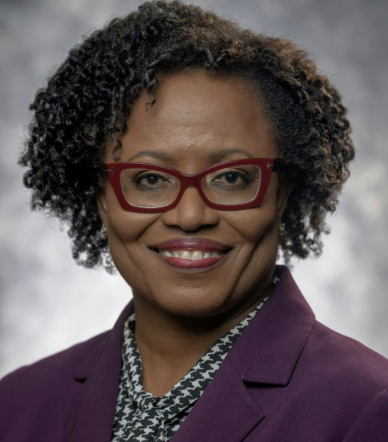Meet our members! AFN’s greatest asset is our members—a diverse network of national, regional, and community-based foundations, financial institutions, and grantmakers—investing in advancing equitable wealth building and economic mobility. Check back each month and meet your peers!
1: What is the mission of your organization and how is advancing equitable wealth building and economic mobility incorporated into the work?
We cultivate wholeness in people and institutions for the transformation of communities. In addition to serving with capacity building support more than 30 local nonprofits who work with families and children from traditionally challenged situations in San Antonio, we are attempting to change the narrative about poverty and the people who experience it. We largely do this by engaging people from different backgrounds and exposing them to historic system racism and the extensive inequities that exist. We are also engaged in a pilot with 1,000 families in San Antonio to learn about direct cash investment in community cohorts and its impact on social mobility.
s
2: What are some of the permanent pivots you have made as a result of the COVID-19 pandemic and the current moment emphasizing the critical need for strategies that provide a range of support to women and Black, Latinx, Indigenous and Asian people and communities?
As an operating foundation, we employ more than 100 people. We have created ways to support our employees with hardship assistance and have moved to a minimum wage that is well above the state minimum wage requirements. We also make our capacity building program grants unrestricted. We try to employ trust based practices where we are taking the load off of the organizations we serve in as much as we can. We have made it a priority to focus on brown and black led organizations for our capacity building efforts, particularly for smaller organizations that have not traditionally had the means to fundraise as effectively. Much of this was in place prior to COVID, but the pandemic definitely reinforced it.
3a: What are some of the most significant gaps that you have identified that could help address economic equity?
Low credit scores and the ways people can access loans for cars and housing. We need to invest in projects aimed at helping people increase their credit scores. It’s a huge issue and can be brought on by something as basic as a medical emergency.
3b: Thinking about your previous answer, what do you see as the biggest barriers or challenges for philanthropy to address these gaps?
Policies need to be addressed that prohibit the government from providing support to people who have certain asset levels. I’m not sure it’s still the case, but I know early in the pandemic in Texas, it was difficult to give any family SNAP benefit if they owned a car valued at more than $15,000 – or something ridiculous like that. How can we ever expect people in Texas to make financial progress if they don’t have a reliable car?
4: Are there any useful resources you would like to share with your funder colleagues?
There are two great programs out there that are working to address credit scores that I’m now engaged with: RIP Medical Debt and On the Road Lending. If medical debt could be eliminated and everyone who’s capable of earning at least $20,000 annually could drive a reliable vehicle, we would make a huge dent in the asset accumulation battle.
5: What is the last book you read?
I’m just about finished reading Love Your Enemies by Arthur Brooks. If you are looking for ways to reach across the aisle from people who think differently than you, or your organization is looking for ways to help reconcile the extreme polarization happening today, I would highly recommend it to you.
About Perri Rosheger, Vice President of Community Engagement and Communications, H.E. Butt Foundation
The H. E. Butt Foundation is an operating foundation focused on spiritual formation and health in families and children. Primarily headquartered in Kerrville, Texas, we also have offices in San Antonio and Real County. Most of our programming takes place on 1,900 acres situated along a breathtaking stretch of the Frio River Canyon in Real County. There, we run five programs—a youth camp, a family camp, an adult retreat center, an outdoor school, and a camp that provides free facility use to qualifying groups.
Outside the Canyon, we operate a sixth community engagement program dedicated to fostering health in families and children in San Antonio, Kerrville, and Real County. This work is upstream focused and includes strategies around opportunity equity and early interventions for mental health and wellness and other hardships that keep families and children out of crisis.
I oversee all of community engagement work, which includes capacity building with nonprofits in San Antonio and Kerrville, TX, a neighborhood equity narrative change project, partnership strategies in Real County, and special projects led by the President. Currently, one of the special projects involves a partnership in San Antonio with UpTogether, a cash assistance pilot with 1,000 families that also helps leverage social capital through community cohorts.

